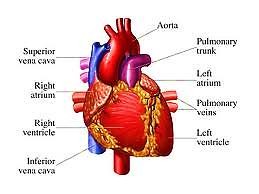

Dr. Divakar Bhat is famously known as "Beating Heart Surgeon".
People also call him "A people's doctor" for the kindness and the concern towards the society he holds.
People also call him "A people's doctor" for the kindness and the concern towards the society he holds.

There has been a considerable enhancement in the richness of diet that our people have been taking over the years. This factor, combined with reluctance to exercise, the increased prevalence of diabetes, an increase in jobs that are deskbound, and the relative stress of modern urban living, has contributed to the wave of a swelling population of Indians affected with heart problems. All these factors put together lead to a possibility for Indians to have a very high incidence of heart diseases.
It has been estimated that Indians are nearly four times more susceptible to heart attacks than white Americans. According to the World Health Organization (WHO), 60 percent of the world's cardiac patients will be Indian by 2010.
Food is directly involved in many of the risk factors for coronary heart disease. Paying attention to what you eat is one of the most important preventative measures you can take. In addition to knowing which foods to eat, you'll also need to know how much you should eat. Overloading your plate, taking seconds and eating until you feel stuffed can lead to eating more calories, fat and cholesterol than you should.
What exactly is an overall healthy diet?
A well-rounded, nutrient-rich diet can help protect you from many diseases and health problems, including heart disease. But for many of us, trying to understand what constitutes good nutrition can be overwhelming. Here are the most important points to be considered.
Limit unhealthy fats and cholesterol.
Of the possible changes, limiting how much saturated and trans fat you eat is the most important step you can take to reduce your blood cholesterol and lower your risk of coronary artery disease. A high blood cholesterol level can lead to a buildup of plaques in your arteries, called atherosclerosis, which can increase your risk of heart attack and stroke.
Good fats for heart health
Rather than cutting all fat from your diet, it is better to replace the bad fats with good fats. Contrary to what many believe, not all fat is bad. Fats are necessary and vital for good health; the type of fat you consume is what is important.
The good fats for heart health are monounsaturated and polyunsaturated, which reduce bad cholesterol levels and provide nutrients that help our cells function properly. Polyunsaturated fats include the Omega-3 and -6 fatty acids, which also benefit cardiovascular health. These are known as essential fatty acids (EFAs) because the body cannot manufacture them and they must be provided through the diet.
Easy sources of these good fats include nuts, seeds, fish, vegetable oils (especially olive oil) and avocados. Always use a variety of oils and in rotation so that you get the benefits of MUFA, omega-3 and omega-6 fatty acids. OILS to be used in rotation: Sunflower oil, mustard oil, ricebran oil, soyabean oil, groundnut oil, sesame oil.
Quantity: Only 2 to 3 tsp per person per day
The bad fats are saturated fats, trans fats and damaged fats.
It has been estimated that Indians are nearly four times more susceptible to heart attacks than white Americans. According to the World Health Organization (WHO), 60 percent of the world's cardiac patients will be Indian by 2010.
Food is directly involved in many of the risk factors for coronary heart disease. Paying attention to what you eat is one of the most important preventative measures you can take. In addition to knowing which foods to eat, you'll also need to know how much you should eat. Overloading your plate, taking seconds and eating until you feel stuffed can lead to eating more calories, fat and cholesterol than you should.
What exactly is an overall healthy diet?
A well-rounded, nutrient-rich diet can help protect you from many diseases and health problems, including heart disease. But for many of us, trying to understand what constitutes good nutrition can be overwhelming. Here are the most important points to be considered.
Limit unhealthy fats and cholesterol.
Of the possible changes, limiting how much saturated and trans fat you eat is the most important step you can take to reduce your blood cholesterol and lower your risk of coronary artery disease. A high blood cholesterol level can lead to a buildup of plaques in your arteries, called atherosclerosis, which can increase your risk of heart attack and stroke.
Good fats for heart health
Rather than cutting all fat from your diet, it is better to replace the bad fats with good fats. Contrary to what many believe, not all fat is bad. Fats are necessary and vital for good health; the type of fat you consume is what is important.
The good fats for heart health are monounsaturated and polyunsaturated, which reduce bad cholesterol levels and provide nutrients that help our cells function properly. Polyunsaturated fats include the Omega-3 and -6 fatty acids, which also benefit cardiovascular health. These are known as essential fatty acids (EFAs) because the body cannot manufacture them and they must be provided through the diet.
Easy sources of these good fats include nuts, seeds, fish, vegetable oils (especially olive oil) and avocados. Always use a variety of oils and in rotation so that you get the benefits of MUFA, omega-3 and omega-6 fatty acids. OILS to be used in rotation: Sunflower oil, mustard oil, ricebran oil, soyabean oil, groundnut oil, sesame oil.
Quantity: Only 2 to 3 tsp per person per day
The bad fats are saturated fats, trans fats and damaged fats.

- Choose low-fat protein sources.
Lean meat, poultry and fish, low-fat dairy products and egg whites are some of your best sources of protein. But be careful to choose lower fat options, such as skim milk rather than whole milk and skinless chicken breasts rather than fried chicken patties. If you want to know more about Lectin-free foods, visit Healthcanal to know more. - Eat more vegetables and fruits.
Vegetables and fruits are good sources of vitamins and minerals; they are low in calories and rich in dietary fiber. A diet high in soluble fiber, the kind found in fruits and vegetables can help lower your cholesterol and reduce your risk of heart disease. Vegetables and fruits also contain substances found in plants that may help prevent cardiovascular disease. Eating more fruits and vegetables may help you eat less high-fat foods, such as meat, cheese and snack foods. Don't smother vegetables in butter, dressings, creamy sauces or other high-fat garnishes. - Select whole grains
Whole grains are good sources of fiber and other nutrients. Whole grains are also a source of vitamins and minerals, such as thiamin, riboflavin, niacin, vitamin E, magnesium, phosphorus, selenium, zinc and iron. Various nutrients found in whole grains play a role in regulating blood pressure and heart health.
You can increase the amount of whole grains in a heart-healthy diet by making simple substitutions. For example, choose breads made from 100 percent whole grain instead of those with refined white flour, whole-wheat pasta over regular pasta and brown rice instead of white rice. Select high-fiber cereals for breakfast, such as bran flakes, oats, or shred-ded wheat, instead of sugar-sweetened cereals. Select whole-wheat flour rather than white flour for making chapattis at home.
Another easy way to add whole grains to your diet is ground flaxseed. Flax-seeds are small brown seeds that are high in fiber and omega-3 fatty acids, which can lower your total blood cholesterol. Add ground flax seed to your sal-ads or chapattis. Also a great way to increase the fiber content is to add two cups of wheat or oat bran to five cups of chapattis flour.
No Smoking, Less Alcohol
Studies have shown that both active and passive smokers are at risk of developing heart disease and lung cancer. So smokers, please stub it out completely. Moderate alcohol intake is said to be good for the heart according to certain studies, but too much raises risk of high BP and stroke. Moderate quantity means 1-2 drinks a week. Cigarette smoking has been associated with sudden cardiac death of all types in both men and women.
- Smoking-related coronary heart disease may contribute to congestive heart failure. An estimated 4.6 million Americans have congestive heart failure and 43,000 die from it every year.
- Smoking low-tar or low-nicotine cigarettes rather than regular cigarettes appears to have little effect on reducing the risk of coronary heart disease.
- We wish you all a healthy heart and a long life
Copyrights © 2026 Inspiration Unlimited - iU - Online Global Positivity Media
Any facts, figures or references stated here are made by the author & don't reflect the endorsement of iU at all times unless otherwise drafted by official staff at iU. A part [small/large] could be AI generated content at times and it's inevitable today. If you have a feedback particularly with regards to that, feel free to let us know. This article was first published here on April 2012.
Want to Publish About Your Business / Achievements
Let's Discuss Right Away!

All chats are end-to-end encrypted by WhatsApp and won't be shared anywhere [won't be stored either].

